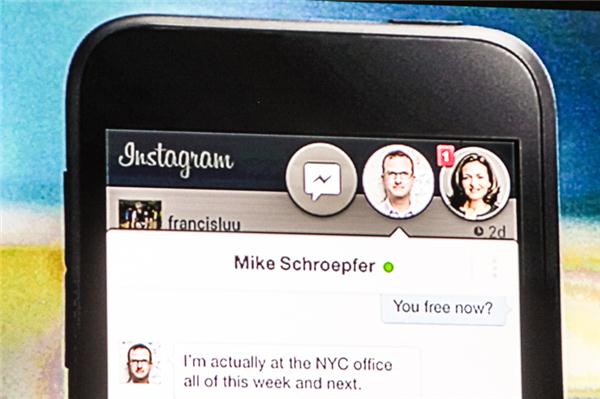Lack of interest, devices to limit Facebook Home's Asia impact


Facebook Home, the just-announced mobile user interface (UI) overlay from the social networking giant, may not be well-received in Asia given the social network is not the most popular platform in certain markets here, as well as the lack of compatible devices initially.
On Friday, Facebook CEO Mark Zuckerberg unveiled the company's Home offering, stressing it is not building a phone or operating phone, but it is not offering just another mobile app either.
Home is based on the premise that the home screen is the "soul" of one's smartphone, and the home screen interface on top of the vanilla Android UI will allow users to customize notifications and popular apps--all with deep integration with the Facebook platform, he explained.
The first smartphone preinstalled with Home will be manufactured by Taiwanese phonemaker HTC, and the HTC First device will be available in the United States from April 12 and retailed by AT&T for US$99.99 with a two-year contract. Besides the HTC First, there will be five other compatible Android handsets that will support Home, and users can download the launcher app via the Google Play app store. Interest will be muted
Commenting on the offering, Mykola Golovko, senior consumer electronics analyst at Euromonitor, told ZDNet Asia that in Asia, most of the growth in smartphone sales was driven by low-cost devices in emerging markets. Given that Home will only be available on higher-tier phones such as the HTC First and Samsung's Galaxy S3, S4 and Note 2, its adoption may only see stronger interest in developed markets but not in others, he said.
He also pointed out the software was designed to concentrate the mobile phone experience around a person's Facebook account, and the social network is not as popular in certain Asian markets as it is in the U.S. or Europe.
"This, combined with the low number of compatible devices, will limit the appeal of the software in Asia," Golovko stated.
Charles Golvin, principal analyst at Forrester Research, agreed that only developed markets will show interest in Facebook's latest offering. He said this is because in developed Asian countries, the mobile phone experience is dominated by Facebook activities, and many consumers "see much of their lives through the lens of Facebook".
Andrew Milroy, Asia-Pacific ICT practice vice president at Frost & Sullivan, added Asia is dominated by low-cost phones from manufacturers such as Huawei Technologies and ZTE, and the Facebook differentiator will not count for much if the consumer's decision is based on price.
Li Li, a reporter based in China, concurred with these assessments, saying she saw "no reason" to purchase the HTC First device if it ever reaches the market or download the mobile app.
"There are cheaper phones from Huawei and ZTE here, and furthermore, we cannot access Facebook from China," Li said.
Privacy a concern
Jan Dawson, chief telecoms analyst at Ovum, pointed out that while Facebook Home makes sharing personal information and photos with friends easier, it also allows the social media giant to track more of the user's behavior on mobile devices. This, in turn, presents the company more opportunities to serve ads to users, he added.
"Once again, Facebook objectives and users' [interest] are in conflict. Users don't want more advertising or tracking, and Facebook wants to do more of both. That presents the biggest obstacle to success for this experiment," Dawson said.
Consumers ZDNet Asia spoke to also expressed concerns over privacy, if not disinterest in being logged on to Facebook all the time.
Peace Chiu, a reporter, said the Home service would invade her personal space and may be able to track her private information more easily. She added: "Facebook's layout is also not especially user-friendly, so I don't see why Home would be."
Engineer Shawn Lee said he would not consider getting HTC First or download Facebook Home on his smartphone because he did not want to be "immersed" into Facebook all the time.
"I don't have to know what my friends are doing every time I look at my phone," Lee said, adding it seemed like his smartphone battery may be drained as Home is essentially "a home screen full of widgets".
Lim Kian Hean added that "deep Facebook integration" was not a strong selling point and deciding factor when choosing to buy a smartphone. "Being connected all the time to Facebook [sounds] very negative to me. I'd rather have the freedom to log in to Facebook as and when I want and not forced to see all messages and newsfeed on my home screen all the time," the financial analyst said.
Lim added he was an "Apple fan" and would not consider any other operating systems or smartphones other than the company's iPhone and iOS.
Legal executive Liew Kuang Howe, meanwhile, noted he was "already happy" with Facebook's mobile and messenger apps for his Android phone and does not see the need to get Facebook Home or a smartphone preinstalled with it.
"Besides, the other operating systems like Windows 8, BlackBerry, Android and iOS are so much better," Liew said.